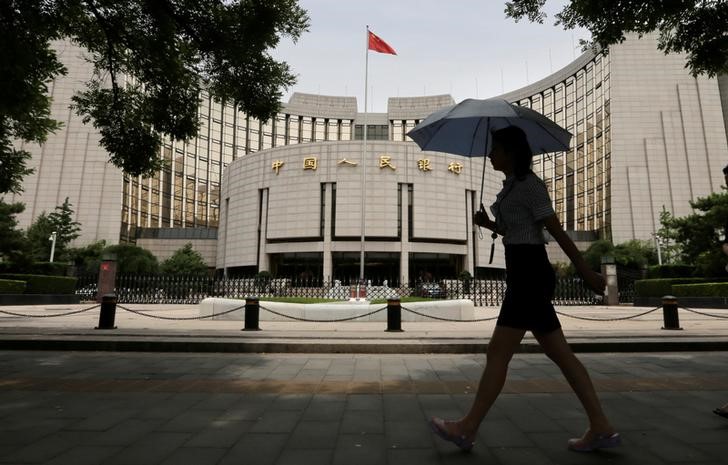BEIJING (Reuters) - China's central bank said on Wednesday it has achieved initial results in financial deleveraging but will continue to fend off systemic risks as debt levels in the economy remain relatively high.
"The overall level of leverage is still high, especially the debt pressure on state-owned enterprises is still large," the People's Bank of China said in its fourth-quarter monetary policy implementation report.
"We will fight a tough battle against major financial risks and safeguard the bottom line of systemic financial risks."
Since the fourth quarter of 2017, growth of China's macro leverage ratio has started to fall and financial deleveraging has achieved initial results, the central bank said.
The central bank said it would also strike a balance between stabilizing growth, deleveraging and controlling risks.
The weighted average lending rate for non-financial firms, a key indicator reflecting corporate funding costs, fell 2 basis points in the fourth quarter to 5.74 percent, following a rise of 9 basis points in the third.
The central bank pledged to unwind some of its earlier measures to support the yuan, given that China's cross-border capital flows have become more balanced and the yuan is basically steady against a basket of currencies.
In September, the PBOC scrapped reserve requirements for financial institutions settling foreign exchange forward yuan positions, and stopped requiring foreign banks to put aside reserves for offshore yuan deposits in China.
"It's necessary to make counter-cyclical macro-prudential management measures unveiled previously to curb cyclical fluctuations in the foreign exchanger market return to neutrality," the central bank said.

The central bank has effectively reduced the effect of the "counter-cyclical" factor it introduced in May last year to the formula it uses to determine the mid-point reference rate for the yuan's rate against the U.S. dollar each day.